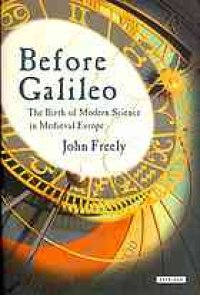This history of science in the Dark Ages documents the achievements of lesser-known European scholars, including the monk Saint Bede, who effectively paved the way for the discoveries of such luminaries as Galileo and Newton. Histories of modern science often begin with the heroic battle between Galileo and the Catholic Church, which ignited the Scientific Revolution and led to the world-changing discoveries of Isaac Newton. Virtually nothing is said about the European scholars who came before. In reality, more than a millennium before the Renaissance, a succession of scholars paved the way for the discoveries for which Galileo, Newton, and others are often credited. In this book the author examines the pioneering research of the first European scientists, many of them monks whose influence ranged far beyond the walls of the monasteries where they studied and wrote. One of the earliest of them, Saint Bede, writing a thousand years before Galileo, was so renowned that two centuries after his death a Swiss monk wrote that "in the sixth day of the world [God] has made Bede rise from the West as a new Sun to illuminate the whole Earth." Another, an early Oxford scholar named Robert Grossteste, developed the foundational principles of the scientific method that would bring Galileo Galilei worldwide fame several centuries later. This book fills a gap in the history of science, and places the great discoveries of the age in their rightful context. Read more...
